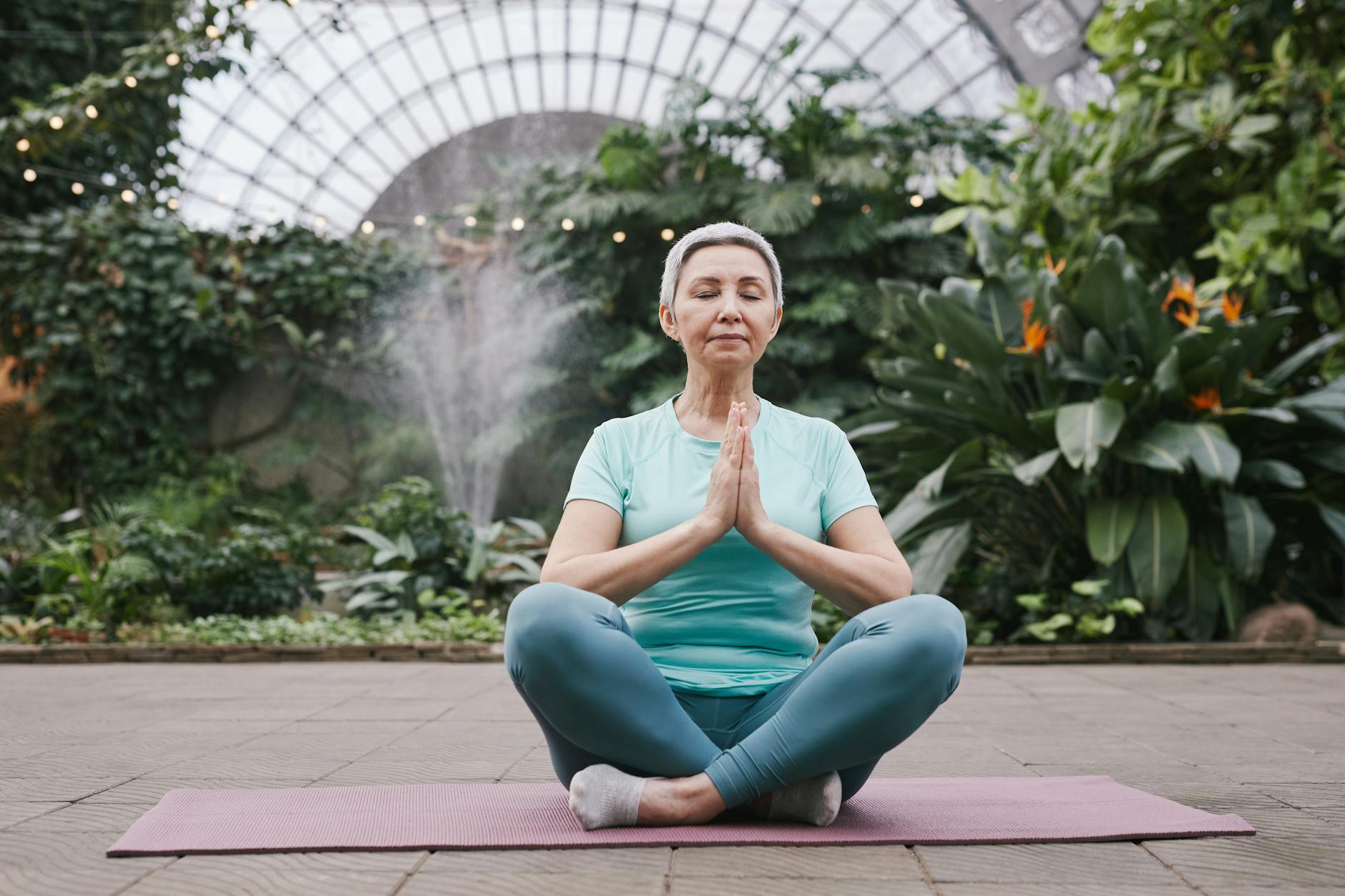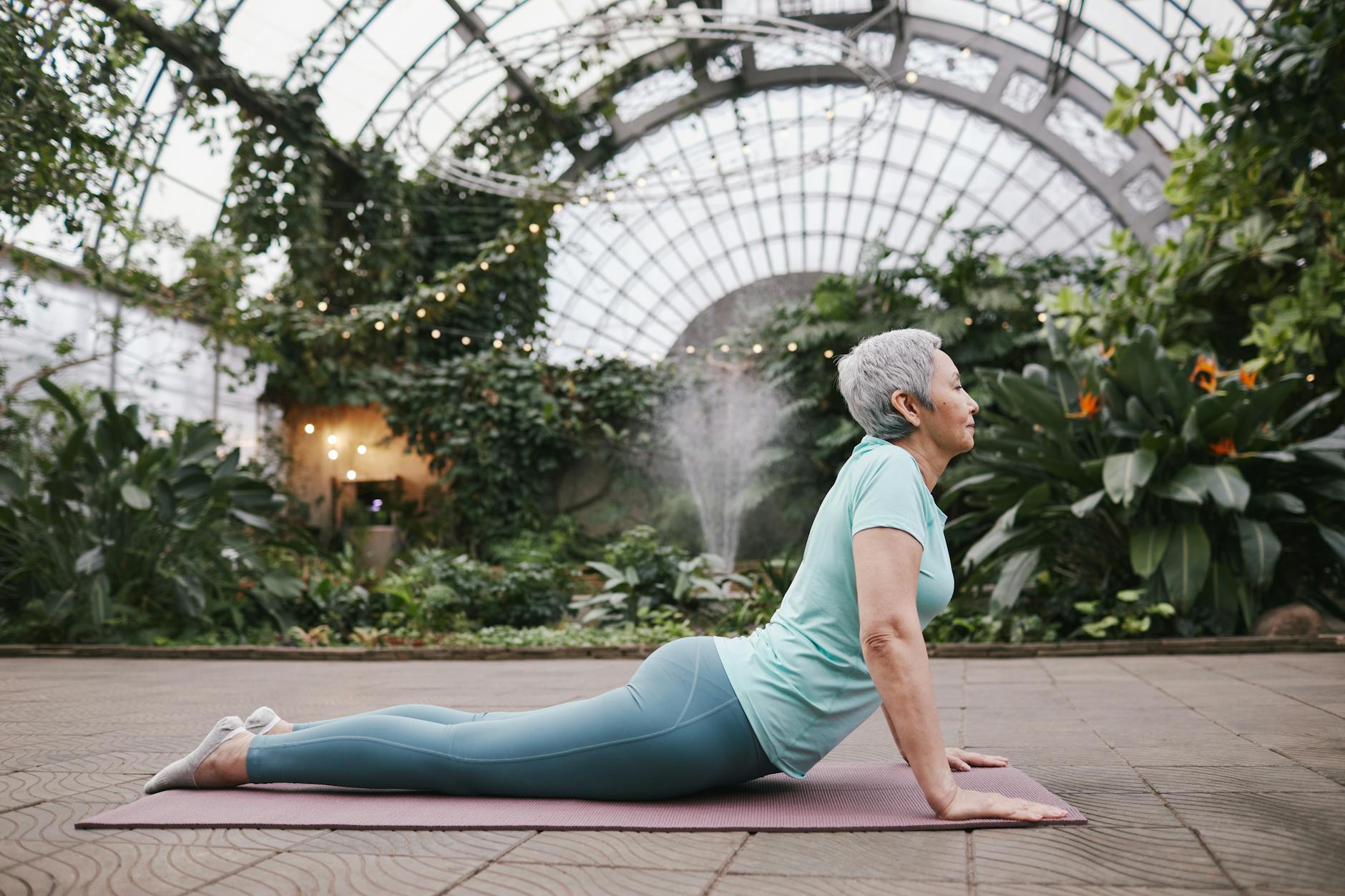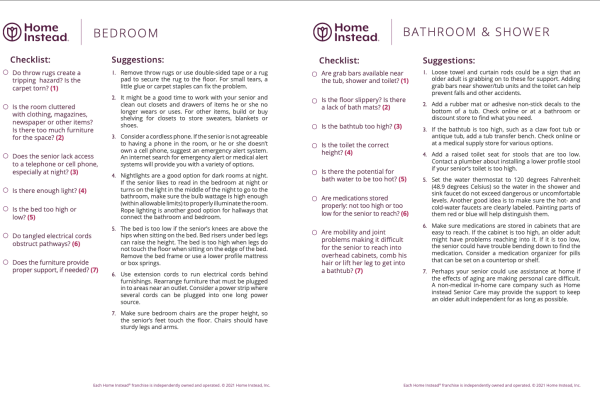Maintaining healthy habits is crucial as you age. For seniors, adopting these behaviors can significantly boost physical and mental well-being, ensuring a quality life. Eating a balanced diet rich in fruits, vegetables, lean proteins, and whole grains helps to maintain body strength and cognitive function. Regular physical activity, such as walking or gentle exercises, strengthens muscles and bones, reducing the risk of common age-related ailments.
Furthermore, staying socially active keeps the mind sharp and can stave off feelings of loneliness and depression. Incorporating these habits into your daily routine isn't just beneficial; it's essential for healthy aging. We'll walk you through some practical tips to help you or your loved ones start on a healthier path today.
Nutritional Guidelines for Seniors
As you age, your body's nutritional needs change. Eating the right foods can help you stay healthy and maintain a good quality of life. Let’s explore some essential guidelines for maintaining a nutritious diet in your senior years.
Importance of a Balanced Diet
 Photo by Engin Akyurt
Photo by Engin Akyurt
A balanced diet is key to staying healthy as you get older.
- Whole Grains: Foods like oatmeal, whole-wheat bread, and brown rice provide fiber, which helps with digestion and keeps your heart healthy.
- Lean Proteins: Incorporate sources like chicken, fish, beans, and nuts. These help maintain muscle mass and keep your metabolism running smoothly.
- Fruits and Vegetables: Aim for a colorful plate. Different colors usually mean different vitamins and minerals, which are vital for your overall health.
- Healthy Fats: Avocado, nuts, seeds, and olive oil can support brain health and reduce inflammation.
For more detailed dietary guidelines, check out USDA MyPlate Nutrition Information for Older Adults.
Hydration Needs
Hydration becomes more crucial as you age. Seniors may sometimes not feel thirsty, even when their bodies need water. Here are some tips to ensure you stay hydrated:
- Carry a Water Bottle: Keep it with you and take sips throughout the day.
- Eat Water-Rich Foods: Include fruits like watermelon, oranges, and vegetables like cucumbers in your diet.
- Set Reminders: Use alarms on your phone to remind you to drink water regularly.
- Flavor It: If plain water is boring, try adding a slice of lemon, lime, or cucumber to make it more enticing.
Consistent hydration helps with joint lubrication, digestion, and temperature regulation. For further insights into maintaining hydration, visit Nutrition as We Age: Healthy Eating with the Dietary Guidelines.
Maintaining a balanced diet and staying hydrated are crucial components of healthy habits for seniors. Following these guidelines can help you stay active and healthy for many years to come.
Physical Activity Recommendations
Staying physically active is crucial for seniors to maintain health, mobility, and overall well-being. Engaging in regular exercise can help reduce the risk of chronic diseases, improve mental health, and enhance quality of life. Below are some guidelines on the types of exercises suited for seniors and how to set realistic fitness goals.
Types of Exercises
Seniors should aim to include a variety of exercises in their routines. Different types of exercises provide unique benefits and can help improve overall fitness.

Photo by Marcus Aurelius
Aerobic Exercise
- Examples: Walking, swimming, dancing, or cycling.
- Benefits: Improves cardiovascular health, increases stamina, and supports weight management.
- Recommendation: Aim for at least 150 minutes of moderate aerobic activity or 75 minutes of vigorous activity each week. This can be broken down into 30-minute sessions on most days.
Strength Training
- Examples: Lifting weights, resistance band exercises, or body-weight exercises like push-ups.
- Benefits: Enhances muscle strength, supports bone health, and helps with everyday activities.
- Recommendation: Engage in strength training exercises at least two days a week, targeting all major muscle groups.
Flexibility Exercises
- Examples: Stretching routines, yoga, or tai chi.
- Benefits: Increases range of motion, reduces stiffness, and can prevent injuries.
- Recommendation: Incorporate flexibility exercises into your routine daily or at least three times a week.
Balance Exercises
- Examples: Standing on one foot, heel-to-toe walks, or balance-focused yoga poses.
- Benefits: Improves stability, reduces the risk of falls, and enhances coordination.
- Recommendation: Perform balance exercises at least three times a week, especially important for seniors who have had previous falls or have trouble walking.
Setting Realistic Fitness Goals
It is essential for seniors to set achievable and realistic fitness goals based on their individual abilities and health conditions. Setting goals can keep you motivated and give you a clear path to follow.
Start Small and Build Up
- Initial Goals: Begin with small, manageable goals like a daily 10-minute walk. Gradually increase the duration and intensity as you become more comfortable.
- Adjust Based on Feedback: Listen to your body and adjust your fitness goals based on how you feel. It’s perfectly fine to take rest days when needed.
Use SMART Goals
- Specific: Clearly define what you want to achieve (e.g., walk 30 minutes five times a week).
- Measurable: Ensure you can track your progress (e.g., use a pedometer or activity tracker).
- Achievable: Set goals that are realistic given your current fitness level.
- Relevant: Ensure your goals are meaningful and aligned with your overall health objectives.
- Time-bound: Set a timeframe for reaching your goals (e.g., within the next three months).
Consult Healthcare Professionals
- Get a Check-Up: Before starting a new exercise program, consult with your doctor, especially if you have chronic conditions or concerns.
- Customized Plan: Work with a physical therapist or fitness professional to develop a personalized exercise plan that fits your needs.
For more detailed guidelines on physical activity for seniors, you can check out resources like the NHS Physical Activity Guidelines and the CDC's Recommendations.
Incorporating these types of exercises and setting realistic fitness goals will help in developing healthy habits for seniors, promoting longevity and a better quality of life.
Mental Health and Social Engagement
Maintaining mental health and staying socially active are crucial aspects of overall well-being for seniors. Engaging in activities that challenge the mind and connecting with others can help keep you sharp and improve your quality of life. Let's explore some effective strategies to boost mental health through cognitive activities and social engagement.
Cognitive Activities: Suggest activities that stimulate the mind, such as puzzles, reading, or learning new skills.
Keeping the brain active is essential for healthy aging. Here are some activities that can help stimulate your mind:
- Puzzles: Engaging in puzzles, like crosswords or Sudoku, keeps your brain sharp. Solving puzzles can improve memory and problem-solving skills. Elder.org, recommends various brain games that can be both fun and beneficial for mental health.
- Reading: Reading books, newspapers, or online articles helps you stay informed and exercise your brain. Choose subjects that interest you and keep expanding your knowledge.
- Learning New Skills: Taking up new hobbies, such as painting, knitting, or cooking, provides a sense of accomplishment and keeps your brain engaged. UMH lists more cognitive activities that can invigorate your mind.
- Language Classes: Learning a new language can be challenging, but it significantly boosts cognitive function. Apps like Duolingo make it easier and more accessible to get started.
- Gardening: Gardening can be both relaxing and stimulating. It involves planning, problem-solving, and even physical activity.
Building a Supportive Community: Emphasize the importance of social interaction, including support groups and community involvement.
Staying socially active is just as important as keeping your brain engaged. Building a supportive community can have numerous benefits for your mental health:
- Social Groups: Joining clubs or groups that share your interests can provide a sense of belonging and reduce feelings of loneliness. According to Lions Gate, regular social interaction can lower the risk of depression and anxiety.
- Volunteering: Giving back to the community through volunteer work can offer a sense of purpose and help you stay connected with others. Opportunities to volunteer are abundant, ranging from local charities to national organizations, as highlighted by Chen Medical Centers.
- Support Groups: Joining support groups where members share similar experiences can provide emotional support and practical advice. These groups can be found in person or online.
- Regular Meet-ups: Schedule regular meetings with family and friends. Whether it's a weekly coffee date or monthly family dinner, these interactions can significantly boost mental health. Aging True explains the power of staying connected and its impact on well-being.
- Community Events: Participate in community events and activities. Many communities offer programs specifically designed for seniors, including exercise classes, art workshops, and social gatherings.
 Photo by Florencia Potter
Photo by Florencia Potter
Staying mentally active and socially engaged can make a significant difference in maintaining overall health and happiness. So, pick up a new activity, join a club, and keep those social connections strong.
Routine Health Check-Ups
Maintaining your health as you age is crucial. Routine health check-ups play an essential role in identifying potential health issues before they become serious. Regular visits to your healthcare provider ensure you are keeping up with necessary medical exams and screenings.
 Photo by SHVETS production
Photo by SHVETS production
Managing Chronic Conditions
Managing chronic conditions is one of the key aspects of routine health check-ups for seniors. Many older adults live with chronic diseases such as diabetes, hypertension, and arthritis. Following your doctor's advice is crucial in managing these conditions effectively.
For instance, if you have diabetes, regular check-ups can help monitor your blood sugar levels, ensuring they remain within the target range. Your doctor might adjust your medication or suggest lifestyle changes to better manage your condition. GreaterGoodHealth explains the importance of preventative health check-ups that can detect signs of illness and promote health.
Routine Medical Check-Ups and Screenings
As you age, certain medical exams and screenings become more essential. Here are some you should prioritize:
- Blood Pressure Checks: It helps in detecting hypertension early.
- Cholesterol Tests: Keeping cholesterol levels in check reduces the risk of heart disease.
- Bone Density Scans: These can help detect osteoporosis.
- Cancer Screenings: Regular mammograms and colonoscopies can catch cancer early.
- Eye and Dental Exams: These are vital for maintaining vision and oral health.
Friendship Centers emphasizes the importance of such screenings in catching potential problems early on. Your doctor will guide you on the frequency of these tests based on your health status.
Benefits of Routine Check-Ups
Routine visits to your healthcare provider have several benefits:
- Early Detection: Catch diseases early when they are easier to treat.
- Prevention: Prevent diseases by monitoring indicators like blood sugar and cholesterol.
- Health Management: Manage chronic conditions effectively.
- Peace of Mind: Regular check-ups give you assurance about your health status.
If you want to dive deeper into what to expect during these check-ups, WebMD has a detailed guide on what annual check-ups look like for seniors.
Regular health check-ups and managing chronic conditions through medical advice are vital aspects of maintaining a healthy lifestyle for seniors. These habits can significantly enhance your quality of life and keep you vibrant and active.
Developing Healthy Habits
Building healthy habits is essential for seniors to maintain their well-being and quality of life. By focusing on creating a structured routine and making small changes, you can make a significant impact on your health and happiness.
Creating a Daily Schedule
 Photo by Marcus Aurelius
Photo by Marcus Aurelius
Planning your day can help ensure that you stay active and engaged. A structured routine helps you incorporate essential activities like exercise, meal prep, and social interactions. Here's how you can create an effective daily schedule:
- Start with a Morning Routine: Begin your day with light stretching or mild exercises. This can help wake up your muscles and get your blood flowing. Simple activities like making your bed and enjoying a nutritious breakfast can set a positive tone for the day.
- Incorporate Exercise Time: Find a time of day that works best for you to exercise. It could be a morning walk, a swim at the local pool, or even a virtual yoga class. Regular physical activity is essential for maintaining strength and flexibility. Read more about healthy habits for seniors here.
- Plan Meals Ahead: Meal prep can save you time and ensure you eat balanced and nutritious meals. Plan your weekly menu, shop for ingredients, and set aside time each day for cooking. This can also be a fun activity if you enjoy cooking or trying new recipes.
- Schedule Social Activities: Make time for social interactions, whether it's a video call with family, a coffee date with friends, or participating in community events. Staying socially active is crucial for mental health and emotional well-being. [Source on Daily Routines].
- Include Relaxation: Don't forget to schedule downtime. Whether it's reading a book, napping, or practicing meditation, relaxation is essential for reducing stress and maintaining a calm mind.
Making Small Changes
It's important not to overwhelm yourself when developing new habits. Start with small, manageable changes that can build up over time:
- Swap Snacks: Replace unhealthy snacks with healthier options like fruits, nuts, or yogurt. Small dietary changes can lead to big improvements in your overall health.
- Take the Stairs: If mobility allows, use stairs instead of elevators for an added exercise boost throughout the day.
- Hydrate: Make an effort to drink more water. Keeping a water bottle with you and setting regular reminders can help.
- Set Reminders: Use alarms or reminders on your phone to stand up and move around every hour. This can help break up long periods of sitting and keep you active.
- Practice Mindfulness: Start with just five minutes of mindful meditation each day to improve mental clarity and reduce stress.
Developing healthy habits doesn’t have to be daunting. By starting small and making gradual improvements, you can create a sustainable and healthier lifestyle over time. Find more tips for maintaining good health here.
By focusing on creating a structured schedule and making manageable changes, you can develop habits that support a vibrant and healthy lifestyle.
Conclusion
Adopting healthy habits for seniors offers immense benefits. You can boost your immune system by incorporating nutritious foods like fruits, vegetables, whole grains, and lean proteins. Regular exercise not only strengthens muscles and bones but also enhances mental well-being.
Consistent social interactions reduce feelings of isolation and improve overall happiness. Preventive healthcare, such as regular check-ups and screenings, helps catch potential issues early.
Commit to these healthy habits now. You will improve your quality of life and enjoy a more vibrant and fulfilling future.
Ready to Take the Next Step?
Home Instead offers a range of personalized care services to meet your needs. Whether you need assistance for a few hours or longer, our professional caregivers are here to support you. Fill out our service inquiry form or call us at 860-265-8985 (available 24/7) to learn how we can assist your family.
We look forward to helping you maintain your well-being while ensuring your loved one receives the best care possible. At Home Instead, to us, it’s personal.



